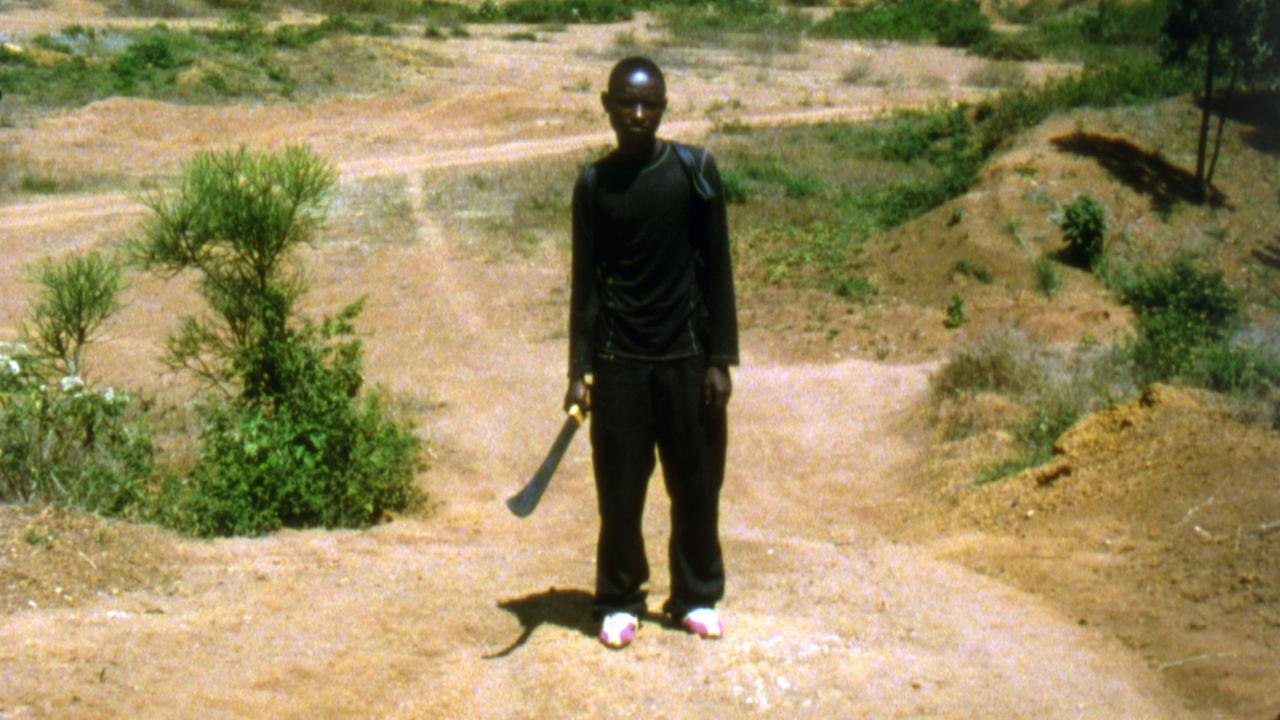
MPAA Rating: NR | Rating: ★★★½
Release year: 2009
Genre: Coming-of-Age, Drama, Foreign Director: Chung
There is a quiet tension running throughout the film, that this country has experienced genocide. There isn’t any violence shown onscreen, but there is a weightiness in the people’s eyes, a sadness caused by seeing far too much pain for one lifetime. A brief moment where Ngabo imagines blood on the end of his machete is all the imagery one needs; this is a land that has seen too much blood spilled already. Sangwa’s parents are instantly troubled by Ngabo’s presence in their home, and their friendship seems to be one of necessity, not mutuality. It’s even difficult to discern what exactly is happening in the story, as filmmaker Lee Isaac Chung allows the camera to silently follow these characters with a sense of documentary-like authenticity. What will Ngabo do with the machete once he reaches his destination?
Much of this film relies on images and the neorealism of the setting. It’s perhaps the most authentically African film to date; this is the first feature film with the African dialect of Kinyarwandan, and the cast are native Rwandans who mostly improvised the dialogue. Filmed in only 11 days, Chung and crew spent much of their time following the cast around and allowed them to retell their own stories in film. Jeff, the young Rwandan portraying Ngabo, was also orphaned in the genocide and living as a petty thief on the streets of Kigali. This isn’t just Munyurangabo’s story; this is Jeff’s story. This is Rwanda’s story. And it’s a story that needs to be told.
This is a film that takes discipline to enjoy. With little dialogue, a difficult narrative to follow, and nonprofessional actors, it took significant effort for me to push through to the emotive climax. But it’s worth the efforts. There is a powerful moment near the closing moments when Ngabo encounters Rwanda’s poet laureate, Edouard B Uwayo. In a powerful scene, Uwayo shares the poem he will share at Rwanda’s Liberation Day ceremony, a poem about justice and peace and grace in the midst of terrible violence. He stares into the camera and pours out a beautiful poem that is beyond language barriers; he is pouring out both his sadness for the past and his hope for the future in one punctuated polemic against injustice.
It’s taken me a few weeks to fully appreciate Munyurangabo. It’s slowly percolated in my mind, churning and moving and coming up to the surface at strange moments throughout my daily life. Much like the blood that was spilled in the streets of Rwanda, this film is haunting. It doesn’t leave my thoughts, it nags for my attention, and leaves me contemplating my own sense of justice. Weaving and wandering, like Ngabo through the dusty rural roads of his country, my emotions bring me back to Christ’s grace, his compassion for those who are broken and have broken, for those hurt and those who have hurt others. He loves them both, and offers restoration to both. This is the power of both Munyurangabo and the gospel; it’s the power of reconciliation, of mending what once was broken so that creation can be fully healed. In a world where over half a million people can be slaughtered in 100 days, it’s the only hope we have.
IMDB Listing: http://www.imdb.com/title/tt1031947/